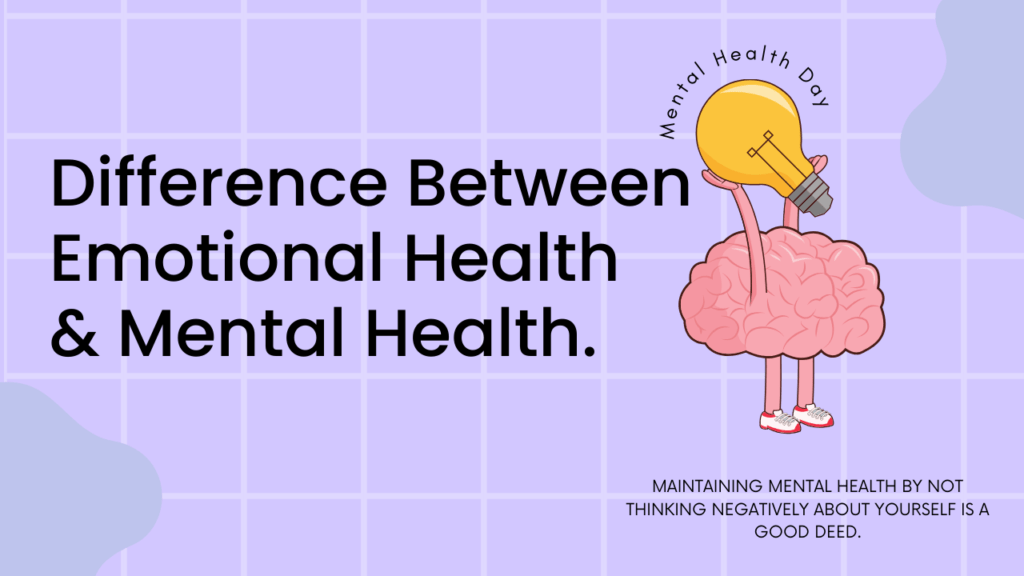Martial arts are often celebrated for their physical benefits, but they can also have a profound impact on mental health. When considering the best martial arts for mental health, it’s crucial to delve into how each discipline uniquely contributes to overall well-being.
While Tai Chi’s emphasis on mindfulness and Jiu-Jitsu’s strategic sparring sessions offer mental resilience, other martial arts like Karate, Capoeira, and more present their advantages for mental health. Through a blend of physical movements and mental discipline, these arts offer a comprehensive approach to improving emotional well-being.
Let’s explore some of the top martial arts that not only enhance your physical strength but also cultivate your mind, resulting in a more harmonious and sturdy self.
Karate
Karate has been shown to improve mental health by fostering discipline and focus through its rigorous training routines. The structured nature of karate classes can help individuals struggling with anxiety or stress find a sense of control and accomplishment.
By practicing katas and sparring, you can enhance your concentration and self-confidence, which can translate to better mental well-being outside the dojo. The physical aspect of karate also plays an essential role in mental health, as the release of endorphins during training can elevate mood and reduce symptoms of depression.
Additionally, the supportive community within a karate school can provide a sense of belonging and social connection, further contributing to overall mental wellness.
Tai Chi
Engage in the gentle yet powerful practice of Tai Chi to cultivate mental clarity and emotional balance. Originating in ancient China, Tai Chi combines gentle flowing movements with deep breathing and mindfulness.
Research suggests that regular practice of Tai Chi can reduce stress, improve mood, and enhance overall psychological well-being. The slow, deliberate movements help to focus the mind, promoting relaxation and reducing anxiety.
Tai Chi also encourages a mind-body connection, fostering a sense of inner peace and harmony. Additionally, the practice of Tai Chi has been shown to lower levels of cortisol, the stress hormone, in the body.
Jiu-Jitsu
Experience the mental and physical benefits of Jiu-Jitsu through its dynamic practice and focus on self-defense techniques. Jiu-Jitsu emphasizes leverage and technique over brute strength, making it a great martial art for individuals of all ages and sizes.
The practice of Jiu-Jitsu can help improve your mental health by boosting self-confidence, reducing stress, and enhancing focus. Engaging in live sparring sessions, known as ‘rolling,’ allows you to test your skills in a controlled environment, promoting mental resilience and problem-solving abilities.
The supportive community found in many Jiu-Jitsu schools fosters a sense of belonging and camaraderie, which can positively impact your overall well-being. So, whether you’re looking to enhance your self-defense skills or improve your mental health, Jiu-Jitsu offers a holistic approach to both.
Kung Fu
By incorporating fluid movements and mindfulness practices, Kung Fu offers a holistic approach to physical and mental well-being. Engaging in Kung Fu can’t only enhance your physical fitness but also provide significant mental health benefits.
Here’s why you may find Kung Fu beneficial for your mental well-being:
- Stress Reduction: The focus on controlled breathing and precise movements in Kung Fu can help reduce stress and induce a sense of calmness.
- Improved Focus: Practicing Kung Fu requires concentration and focus, which can help you develop mental clarity and improve your ability to stay present.
- Boosted Confidence: As you progress in Kung Fu training and master new techniques, you may experience increased self-confidence and self-esteem.
Taekwondo
Practicing Taekwondo can enhance both your physical strength and mental resilience through its dynamic movements and focus on discipline. The high-intensity kicks and punches in Taekwondo help release endorphins, reducing stress and anxiety levels.
This martial art also emphasizes the importance of perseverance and self-control, instilling a sense of mental fortitude that can be applied beyond the training mat. Studies have shown that individuals who practice Taekwondo experience improved self-esteem and better stress management skills.
The combination of physical exertion and mental focus in Taekwondo can lead to increased concentration and a greater sense of overall well-being. By incorporating Taekwondo into your routine, you can cultivate both physical and mental strength, benefiting your mental health in the process.
Aikido
Incorporating Aikido into your training routine can provide unique mental health benefits that complement the physical aspects of martial arts practice.
Aikido focuses on redirecting an opponent’s energy rather than meeting force with force, promoting a sense of harmony and mindfulness that can positively impact your mental well-being.
Here are three ways Aikido can benefit your mental health:
- Stress Reduction: Aikido techniques emphasize relaxation and staying calm under pressure, helping you manage stress both on and off the mat.
- Increased Mindfulness: By focusing on the present moment during practice, Aikido cultivates mindfulness, promoting mental clarity and emotional stability.
- Enhanced Emotional Regulation: Aikido teaches you to control your reactions and respond thoughtfully, leading to improved emotional regulation skills.
Muay Thai
Muay Thai offers numerous benefits for your mental health, providing a dynamic outlet for stress relief and emotional regulation.
Engaging in this combat sport can enhance your overall well-being by promoting discipline, confidence, and resilience.
The mind-body connection fostered through Muay Thai training can empower you to navigate life’s challenges with a balanced and focused mindset.
Muay Thai Benefits
To enhance your mental well-being, consider the numerous benefits that Muay Thai training can offer.
- Physical Fitness: Engaging in Muay Thai helps improve cardiovascular health, strength, and endurance, which are all linked to better mental health.
- Stress Relief: The intense workouts and focus required in Muay Thai can act as a form of meditation, helping to reduce stress and anxiety levels.
- Boosted Confidence: Mastering new techniques and seeing progress in your skills can notably enhance your self-esteem and self-confidence.
Mental Health Advantages
Engaging in Muay Thai training can provide significant mental health advantages, benefiting individuals through improved well-being and cognitive function.
The intense physical activity involved in Muay Thai releases endorphins, which are known to reduce stress and improve mood. This can help alleviate symptoms of anxiety and depression.
Additionally, the discipline and focus required in Muay Thai training can enhance concentration and mental clarity. By practicing Muay Thai, individuals often experience a sense of empowerment and increased self-confidence, which are crucial components of good mental health.
Studies have shown that regular participation in martial arts like Muay Thai can lead to reduced feelings of anger and increased overall psychological well-being. Embracing this martial art can be a powerful tool in nurturing your mental health.
Mind-Body Connection
Improving your mental health through Muay Thai involves understanding the profound connection between your mind and body during training.
Here’s how this mind-body connection works:
- Focus and Presence:
As you engage in Muay Thai techniques, you learn to be fully present in the moment, sharpening your focus and clearing your mind of distractions. - Physical Expression of Emotions:
Muay Thai provides a physical outlet for releasing stress, anxiety, and frustration, allowing you to process and express your emotions in a healthy way. - Body Awareness:
Through repetitive movements and techniques, you develop a heightened awareness of your body, promoting mindfulness and a deeper connection between your physical and mental states.
Krav Maga
When practicing Krav Maga, focus on developing practical self-defense skills that can be beneficial for your mental health.
Krav Maga, known for its efficiency and real-world applicability, can provide a sense of empowerment and confidence that may positively impact your mental well-being.
By learning how to defend yourself in various situations, you can reduce feelings of vulnerability and fear, leading to increased self-assurance and peace of mind.
| Physical Benefits | Mental Benefits | Social Benefits |
|---|---|---|
| Improves flexibility | Boosts self-confidence | Builds a sense of community |
| Enhances strength | Reduces stress and anxiety | Encourages teamwork |
| Increases cardiovascular endurance | Promotes focus and discipline | Fosters mutual respect |
| Enhances reflexes and coordination | Develops problem-solving skills | Improves communication |
Capoeira
Let’s talk about the mental benefits of Capoeira and the strong mind-body connection it fosters. Capoeira’s dynamic movements not only improve physical fitness but also enhance cognitive functions and emotional well-being.
Engaging in Capoeira can be a powerful way to cultivate mindfulness, reduce stress, and boost self-confidence through its rhythmic flow and expressive nature.
Mental Benefits of Capoeira
Curious about how Capoeira can benefit your mental well-being? Engaging in this dynamic martial art can have a positive impact on your mental health.
Mindfulness: Capoeira requires focus on movement, music, and your opponent, promoting mindfulness and helping you stay present in the moment.
Stress Relief: The rhythmic movements and music in Capoeira can help reduce stress and anxiety levels, providing a healthy outlet to release tension.
Confidence Boost: As you learn new skills and techniques in Capoeira, you can experience a boost in self-confidence and a sense of accomplishment, which can translate to improved mental well-being.
Mind-Body Connection in Capoeira
Exploring the practice of Capoeira reveals a profound connection between the mind and body, enhancing your overall well-being through dynamic movement and music. Capoeira’s fluid, rhythmic movements require a harmonious blend of physical agility and mental focus, fostering a strong mind-body connection.
The music in Capoeira, with its traditional instruments like the berimbau and atabaque, further enhances this connection by synchronizing movements with rhythm and beats. Studies have shown that engaging in Capoeira can improve coordination, flexibility, and cognitive function, all of which contribute to a balanced and healthy mind-body relationship.
Conclusion
Practicing martial arts like Karate, Tai Chi, Jiu-Jitsu, Kung Fu, Taekwondo, Aikido, Muay Thai, Krav Maga, and Capoeira can greatly benefit your mental health.
These disciplines offer a combination of stress reduction, improved focus, self-confidence, cultivating a strong mind-body connection for inner peace, and developing mental resilience, to create a holistic approach to mental wellness. By incorporating martial arts into your routine, you can enjoy both physical and mental health benefits, leading to a more balanced and fulfilling life.
Start your journey towards better mental health today.

